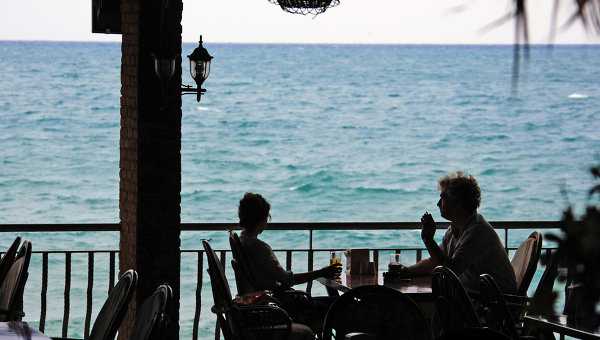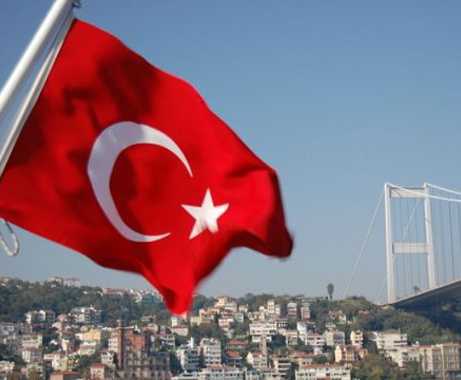Turkey Versus Turkey
By SONER CAGAPTAY
FROM TODAY’S WALL STREET JOURNAL EUROPE
July 8, 2008
The jailing of two retired Turkish generals over the weekend has heightened tensions between the government in Ankara and its critics. The generals are among 21 people whom police have detained over the past week, including a senior industrialist and a prominent journalist, on suspicion of plotting a coup against the ruling Justice and Development Party (AKP) government. Interestingly, the interrogations occurred as the chief prosecutor appeared before the constitutional court to make his case that the AKP be shut down for violating the state’s official secularism.
While this showdown immediately revived the cliché of the “real Turks” of the AKP fighting off the “secular elites,” this is not a case of the pious, popular masses versus an irreligious intelligentsia. Both Turkeys in this power struggle are religious, both are wealthy, and both are equipped with powerful media and security assets. Still, the outcome will have a profound effect on Turkey’s future direction.
The AKP has been ascendant since winning 47% of the vote in the July 2007 elections. That result was an improvement on its previous showing at the ballot box, and many viewed it as proof of the AKP’s strength. But the other way to look at it is that 53% of the Turkish electorate did not vote for the party. If secular Turks have their sympathetic journalists and their cadre of wealthy businessmen, so does the AKP: Pro-AKP billionaires abound in Istanbul, and they own around 50% of Turkey’s media outlets. What’s more, even Turks who voted for secular parties are religious: Opinion polls show that over 90% of Turks, regardless of which side of the political fault line they fall on, practice Islam. Finally, well-connected Turks suggest that while secular Turks can rely on military intelligence, pro-AKP groups control police intelligence.
The struggle is for Turkey’s soul, specifically whose vision should win the age-old debate in Turkey between religion and politics. Secular Turks want to keep religion firmly separated from politics, education and government, while the AKP sees no harm in bringing religion into these realms.
The AKP has been winning this struggle of late. The military, long considered a bastion of secular Turkish politics, is in disarray. In the latest incident, a Turkish general was unwittingly videotaped while discussing confidential information about another general’s health, and the recording posted on YouTube. This was all the more embarrassing because the general speaking in the video is responsible for electronic warfare — and has been busy fighting a spate of recent condemning leaks about top military brass, including top secret military documents published in pro-AKP media.
The powerful secular business community, too, feels the pinch of six years of single-party rule. It’s true that Turkish businessmen of all persuasions have prospered from economic growth under the AKP. There was even a time when Tusiad, a lobbying group of secular business leaders, felt comfortable with the AKP, as Tusiad could offer the party advice and act as a check on its power.
That does not seem to be the case today. Emboldened by its electoral victory, the AKP is steadfastly ignoring secular Turkey. The government’s first postelection move was to press media outlets owned by Tusiad members to fire prominent journalists, such as Emin Colasan and Asli Aydintasbas, who had not supported the party during the campaign.
The AKP has also used legal loopholes to transfer large media companies, such as Sabah-ATV, Turkey’s second-largest media conglomerate, to pro-AKP businessmen. The government first charged Sabah-ATV’s owners with improper business practices and then passed control of the company to a national regulator. The regulator then sold the media group at an auction that had only one bidder: an AKP supporter who appointed Prime Minister Recep Tayyip Erdogan’s son-in-law as the media group’s new CEO.
Media companies aren’t the only businesses threatened by this newly muscular AKP. The CEOs of several major Turkish banks and other companies have told me that if a firm criticizes the government, the financial police soon visit its offices to find a potentially devastating problem with its books. In the Byzantine world of Turkish bureaucracy, this is not such a difficult task.
The AKP’s dismissive attitude toward secular Turkey also became apparent in the debate over a new constitution. Turkey indeed needs a liberal new constitution. Shortly after its 2007 victory, the AKP started to draft a new constitution but vehemently refused any input from outside its ranks, even telling its erstwhile supporter Tusiad to “keep away.” The new constitution has yet to be finalized and has turned into a partisan project.
Then, in February 2008, the AKP passed a law permitting the wearing of the Islamic-style headscarf on college campuses. The Islamic headscarf is the most divisive social issue in Turkey, splitting the country in the same way abortion divides American society. Yet the AKP changed the status quo on the headscarf issue in just three weeks, once again dismissing public debate.
These developments led to harsh action by secular Turkey. The constitutional court has reversed the AKP’s legislation on the headscarf issue, and the country’s chief prosecutor has begun a case to shut down the party for breaching the country’s constitution, which says that Turkey’s secular nature is inviolable. The court will decide the AKP’s fate later this summer.
It’s in this context that one has to assess the past week’s jailings and other arrests since last year. The government has certainly targeted some real criminals — some of whom are outright mafia types, and some of whom may have been contemplating a coup. But the police have also detained honest critics of the AKP, such as journalists. The government seems to try to harass these journalists by arresting them together with real criminals. Even if they are released later without any charges, in the public eye the reporters might still be guilty simply by association.
One such opponent that the AKP has targeted is Turkey’s oldest daily newspaper, Cumhuriyet, which has been steadfast and often alone in its criticism of the AKP ever since the party came to power in November 2002. Among the arrested last week was Cumhuriyet’s Ankara bureau chief, Mustafa Balbay. This follows the March 21 jailing of the paper’s 83-year-old editor, Ilhan Selçuk, at 4:30 a.m. at his Istanbul apartment.
Mr. Selçuk was released after a two-day interrogation about private phone conversations, including chats with the paper’s correspondents, which the police had wiretapped. Almost four months later, the authorities have yet to bring charges against him. This story is a case in point: Turkish journalists tell me privately that they believe the AKP government has intercepted more than 1.5 million phone and email conversations involving its secular opponents. These journalists are left to wonder who among them will be jailed next.
* * *
So it’s clear that neither secular Turkey nor the AKP will go down without a fight. The question is who will win this battle for Turkey’s soul.
There are two possible outcomes. In 2001, when the constitutional court shut down the AKP’s predecessor, the Welfare Party, the Islamists conceded defeat. At that time they had neither massive public support nor billionaire donors nor media backup to rely on. But that scenario is unlikely today, since the picture now is very different. The AKP is as well-equipped as secular Turkey. Hence, instead of conceding defeat, the party is more likely to fight on, cornering the military and using intelligence assets, the arrest and intimidation of opponents, and the financial police to create a more compliant society. The AKP will crush dissent when necessary, and cajole the business community into acquiescence.
If the AKP wins, Turkey will not become a Shariah state; fundamentalist Islam is alien to the Turkish soul. However, it will become a country in which dissent is difficult, and a society suffused with a new, intimate version of a religion-state relationship. Islam will dominate politics and education and will shape the government’s administrative actions — such as curtailing women’s employment and the issuance of alcohol licenses. In other words, it will be less like secular, liberal-democratic Italy and more like authoritarian, semisecular Jordan. This is indeed a battle for two very different Turkeys.
Mr. Cagaptay, a senior fellow at the Washington Institute for Near East Policy, is the author of “Islam, Secularism and Nationalism in Modern Turkey: Who is a Turk?” (Routledge, 2006).
See all of today’s editorials and op-eds, plus video commentary, on Opinion Journal.
And add your comments to the Opinion Journal forum.





